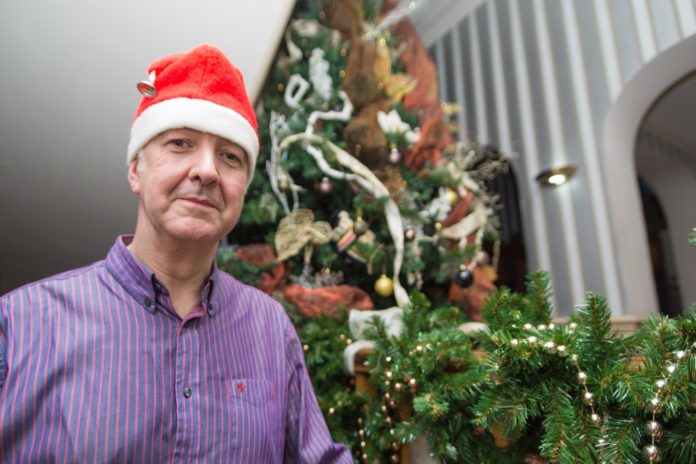Professor Darren Sproston, who is the Director of the School of Arts and Media at the University of Chester, has been exploring the well-known, the obscure, the obvious and the ambiguous in an effort to answer this self-imposed riddle.
Professor Sproston said: “What makes Christmas music Christmassy is a thought-provoking subject. I’ve been looking into this for the last 18 months or so, and it’s a whole lot of fun! There is a wealth of music associated with Christmas – music we perform, music we listen to and music we merely absorb- but there is no doubt that music has an enormous impact on what makes the festive season festive.
“It is easiest to attribute a value of ‘Christmassy-ness’ when the musical composition is explicitly telling you it is Christmassy. If you consider the words for We wish you a Merry Christmas, there is absolutely no doubt what the song is about. The discussion becomes most interesting where words are taken out of the equation leaving no explicit Christmas message. For example, Sleigh Ride, composed by the American Leroy Anderson. He allegedly had the original idea for the composition during a heat wave in July 1946. The piece is noted for the sound of horses’ hooves, the sound of the whips used to get the horses moving, towards the end of the piece a trumpet makes the sound of the horse whinnying and, of course, those all-important sleigh bells intimating a sleigh ride and therefore snow – and when do we get snow…?”
He added: “Another important aspect is a sense of community which music, but especially Christmas music, emphasises. To illustrate my point, the years 1979 and 1980 gave us essentially unChristmassy Christmas number ones, to which we may have been attracted because of the Christmassy nature of the children’s choirs (in the tradition of carol singers and wassailing) used in the tracks: Another brick in the wall by Pink Floyd and There’s no one quite like Grandma by the St Winifred’s School Choir. Two years prior to this, there was the equally unChristmassy Mull of Kintyre occupying the premier spot, which concludes with a community choir singing around a campfire.”
Professor Sproston was born in Stafford and, while studying at the University of Sheffield, was awarded the Phillip John Lord Composition Prize and the Mrs Stewart Blake Dissertation Prize.
He obtained his Master’s of Music in composition and musicology with distinction. He then became the first student to be awarded a Doctor of Philosophy in original composition from the University of Sheffield.
He has composed in a number of genres and styles and his music has been performed as far afield as Moscow and by performers such as the English Serenata, Northern Saxophone Quartet and Rhodri Davies.







